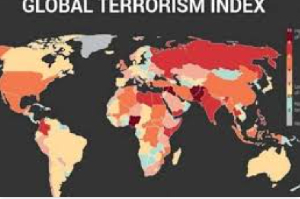Introduction
The release of the 2024 Global Terrorism Index has sent shockwaves through the international community, signaling a significant shift in the epicenter of terrorism from the Middle East and North Africa to sub-Saharan Africa. Of particular concern is the Sahel region, which has emerged as one of the most affected areas by terrorist activities.
According to the report, the United Nations-West Africa recorded more than 1,800 terrorist attacks in the first six months of 2023 alone. These attacks resulted in nearly 4,600 deaths and have had dire humanitarian consequences for the region. The escalating violence and instability in sub-Saharan Africa have raised serious concerns about the capacity of governments and international organizations to address the growing threat of terrorism.
The rise of terrorism in sub-Saharan Africa can be attributed to a combination of factors, including political instability, poverty, weak governance, and the presence of extremist groups. The Sahel region, in particular, has become a breeding ground for various terrorist organizations, including Boko Haram and the Islamic State in the Greater Sahara (ISGS). These groups have capitalized on local grievances and conflicts to expand their influence and carry out violent attacks against civilian populations.
Niger has seen a worrying rise in terrorist attacks over the past few years. Groups like Boko Haram, ISIS in the Greater Sahara (ISGS), and Al-Qaeda affiliates have exploited the country’s weak security infrastructure and political instability. The Tillabéri region, in particular, has become a frequent target for attacks, making Niger one of the most vulnerable nations in the Sahel.
Burkina Faso's shift from a relatively peaceful nation to a terrorism epicenter has been rapid and violent. Extremist factions have carried out numerous attacks on civilians, military personnel, and international aid workers. The Global Terrorism Index 2024 reports a worrying trend of increasing sophistication in these attacks, ranging from ambushes and IEDs to full-scale assaults on towns and military installations.
Mali's struggle with terrorism is not new, but the situation has intensified significantly. The northern and central regions of Mali have been battlegrounds for multiple insurgent groups vying for control. Despite international peacekeeping efforts, the country remains in a state of near-perpetual conflict, with extremist forces continuing to exert significant influence over large swathes of territory.
The shift in terrorism’s global epicenter has profound implications for international security and geopolitics. Firstly, it necessitates a reevaluation of global counter-terrorism strategies. While the focus had long been on the MENA region, security agencies must now pivot to address the unique challenges posed by the Sahel. Secondly, international aid and development programs need to be recalibrated to address the underlying socio-economic issues that terrorists exploit, such as poverty, unemployment, and lack of governance.
The international community must urgently step up efforts to address the root causes of terrorism in sub-Saharan Africa and support affected countries in their counterterrorism measures. This includes providing resources for improving security forces, promoting good governance, addressing socio-economic inequalities, and enhancing regional cooperation to combat transnational terrorist threats.
As the focus of global counterterrorism efforts shifts towards sub-Saharan Africa, with Niger, Burkina Faso, and Mali being the world’s most active terrorism hotspots, policymakers, security experts, and humanitarian organizations must work together to develop comprehensive strategies to combat terrorism in the region. Failure to do so risks further destabilization, increased violence, and the perpetuation of suffering for millions of people living in the affected areas.
Conclusion:
The 2024 Global Terrorism Index serves as a stark reminder of the evolving nature of terrorism and the urgent need for concerted action to address this growing threat. By prioritizing prevention, addressing root causes, and fostering international cooperation, we can hope to stem the tide of terrorism in sub-Saharan Africa and prevent further loss of life and destruction in the region.
Opinions of Monday, 29 July 2024
Columnist: Godson Bill



















